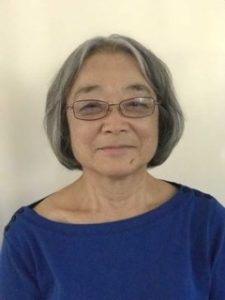When I was a teenager, I wondered why my American friends would brag about disobeying their parents—at home or in public. I sometimes disagreed with my parents, but I would never disagree with them face-to-face, much less in public.
During my graduate studies about culture, I learned that the American family fosters what is called an Individual Identity. When children are growing up, they are constantly asked for their opinion; for example, “What do you want to do?” “What do you want to eat?” “What do you want to wear?” “Where do you want to go?” Parents ask their children for their personal preferences from a young age—even as young as two years old. It is not uncommon to hear a young child disagreeing with a parent because he or she has been taught to have his or her own opinion.
Chinese (and other Asian) families, on the other hand, foster a Family Identity. Within the Asian family everyone has specific roles, but the main goal is to care for and ensure the survival of the family, both materially and spiritually.
Care for others in the family comes from one of the basic virtues in Confucianism, filial piety 孝 (hsiao)—taking care of your parents as they took care of you. The concept of filial piety forms the basis for all other relationships—ruler to subject, parent to child, husband to wife, older to younger, and friend to friend. These are the five hierarchical Confucian relationships in which the older ones are responsible for the care of the younger ones. In turn the younger ones are to submit and obey those who are older. If this virtue is learned well in the childhood home, the expectation is that a person will show the same respect to others in society as a whole.
As a result of this Confucian training, Asian children are taught a sense of indebtedness to their family for what the family provides for the children when they are born, during their upbringing, and adult life. Asian children are expected to reciprocate this care especially when their parents get older.
While they are growing up Asian children are expected to do what they are told. They are not asked their individual opinions (e.g., what they want to eat or do, or what clothes they want to wear); these decisions are made for them by their parents, older siblings, or others who are responsible for their care. Out of respect for older people, the younger ones show their gratitude by doing what they are asked.
The difference between the individual identity and the family identity was one major area of frustration that I and my American colleagues experienced working in Asia. We often complained about how things were done or not done based on our personal opinions. We expected to have a say about whether or not we wanted to do something. We reacted strongly when we were told we had to do something but weren’t asked what we thought.
At the time when I grew up, I knew that I could not disagree openly with my Asian parents or with other authority figures. I would say “yes” out loud but feel the “no “inside. I would suppress these negative feelings and, on top of that, my American friends made me feel guilty because I was telling a lie (saying “yes” outwardly but feeling “no” inwardly). I didn’t understand that by disagreeing with my parents and older people that I was not showing them respect and returning the care they had given me. I also didn’t understand that the stress I experienced living in Asia came from the conflicting American values of wanting to express my own individual opinion vs showing respect to the family and heritage I was born with.
Can you think of a time when you were upset because you were told what to do and not asked for your opinion? Does understanding cultural differences enable you to change how you respond to people who tell you what to do? How can your understanding of the Chinese family structure change your American cultural value of an individual identity in order to promote the gospel message?
More information can be found in Tapestry of Grace: Untangling the Cultural Complexities of Asian American Life and Ministry, Ben Shin and Sheryl Takagi Sizer, 2016, chapter 9, pages 138–143 and Biblical Multicultural Teams: Applying Biblical Truth to Cultural Differences, chapter 3, pages 43–62.
Image credit: Arek Socha from Pixabay.

Sheryl Takagi Silzer
Sheryl Takagi Silzer is a third generation Japanese American. She worked with Wycliffe Bible Translators in Colombia, Papua New Guinea, and Indonesia as a Bible translator. For the past twenty-five years she has worked as a multicultural consultant leading Cultural Self-Discovery workshops for sending agencies, schools, and churches around the …View Full Bio
Are you enjoying a cup of good coffee or fragrant tea while reading the latest ChinaSource post? Consider donating the cost of that “cuppa” to support our content so we can continue to serve you with the latest on Christianity in China.